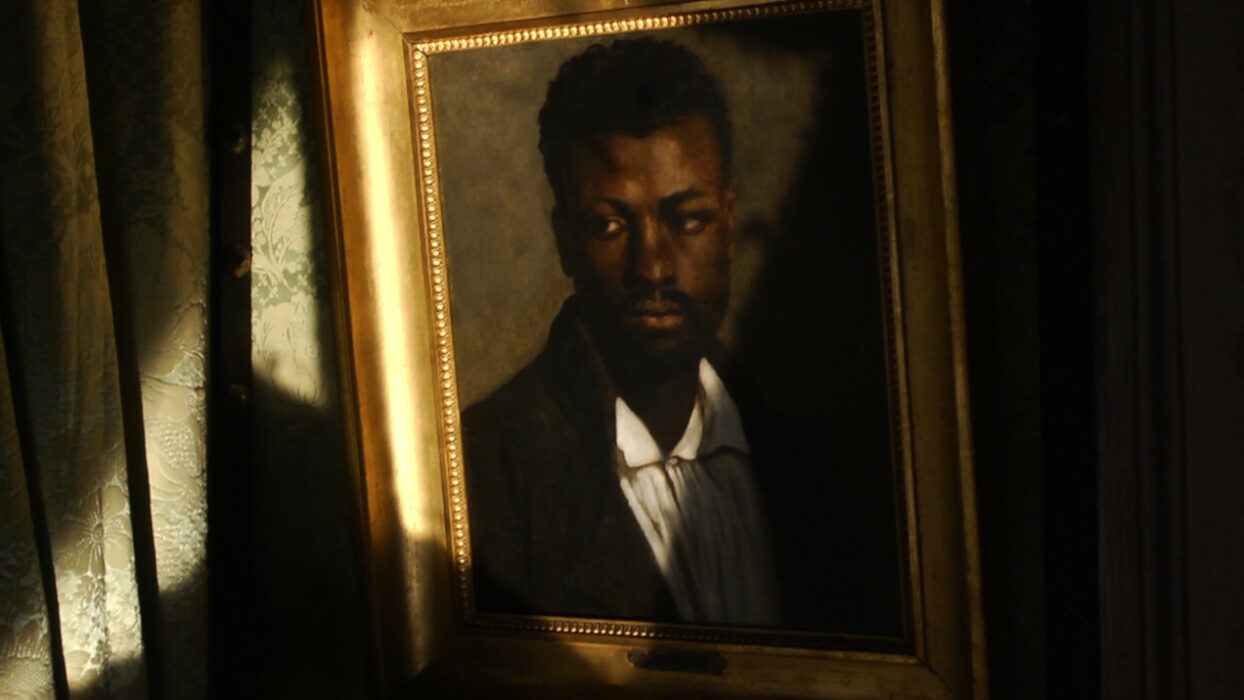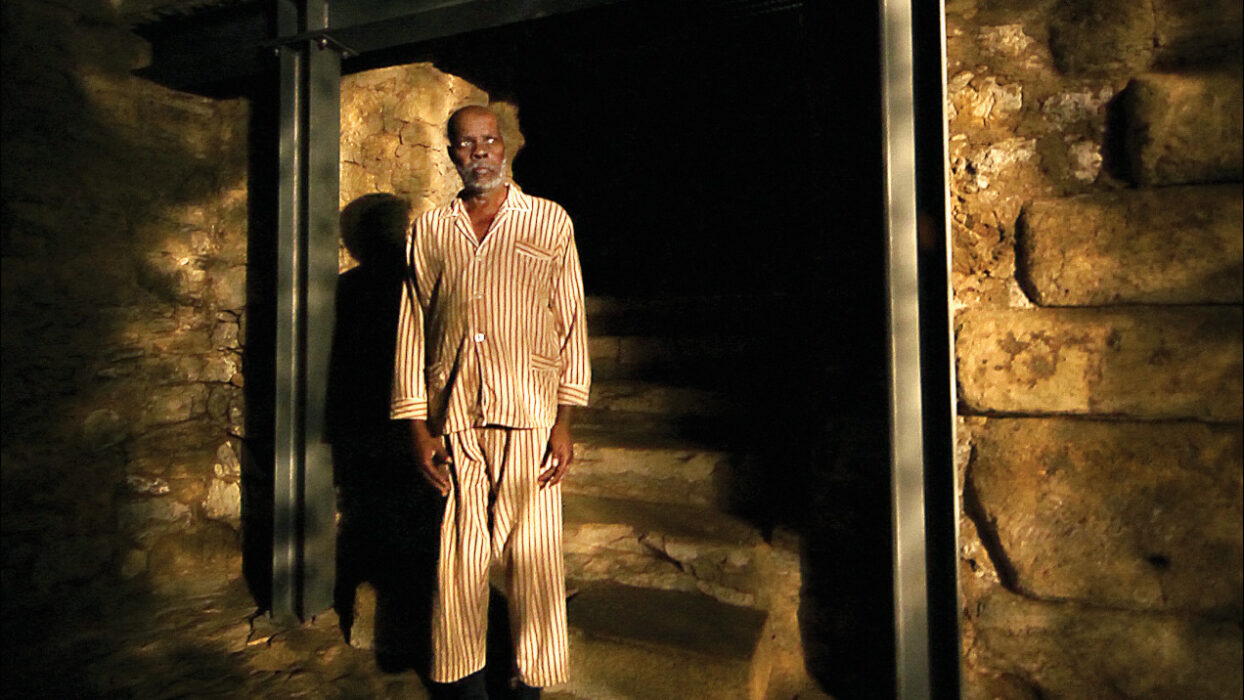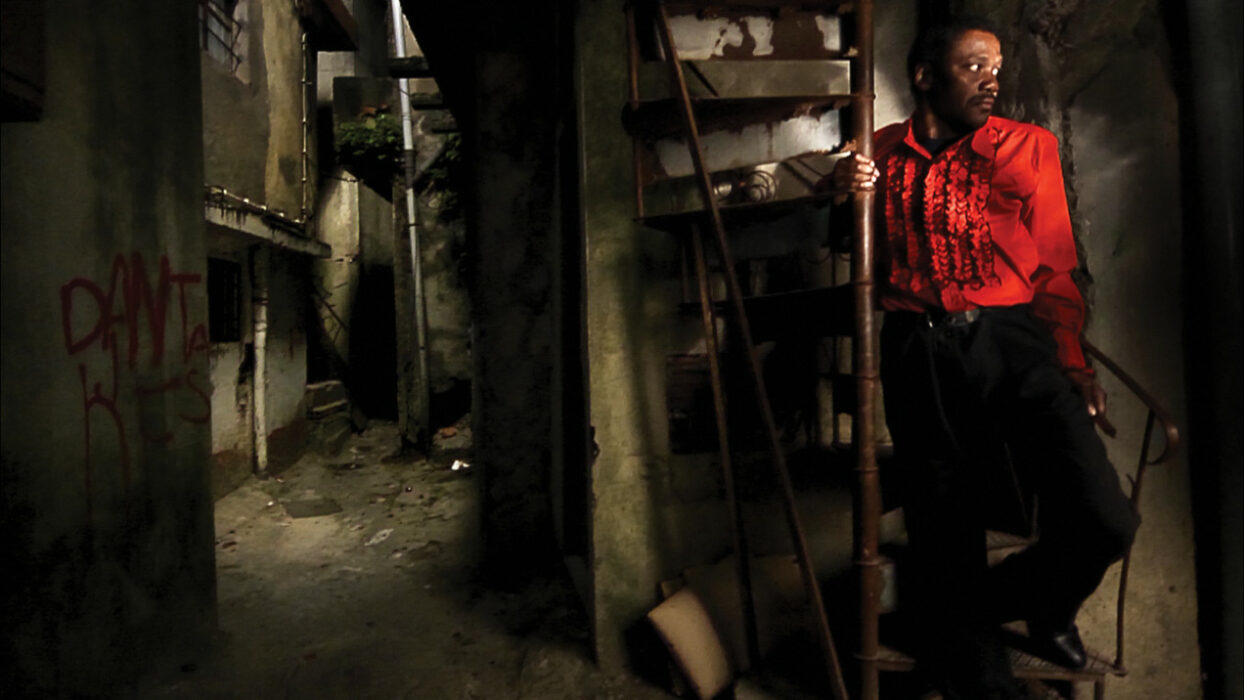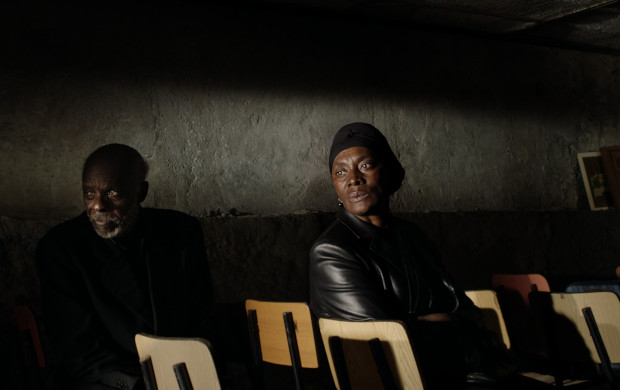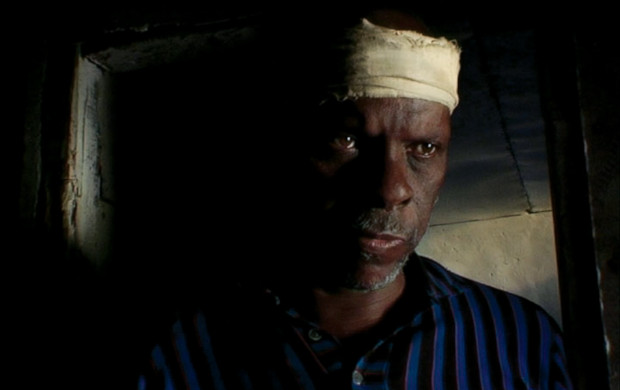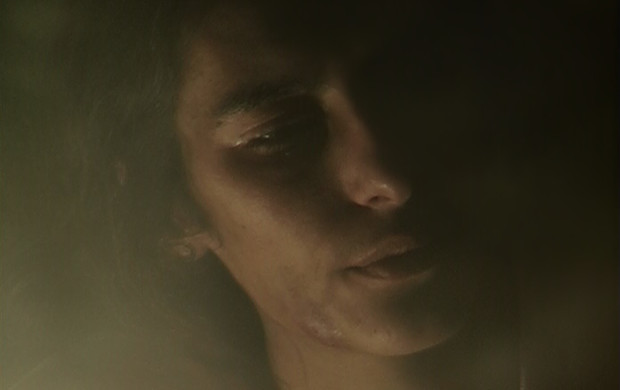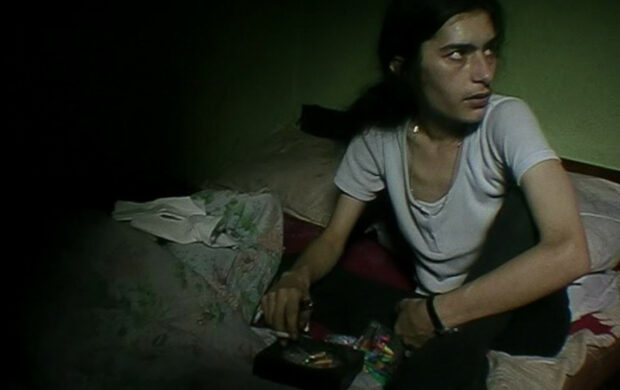Horse Money
CAVALO DINHEIRO
- 2014
- Portugal
- 104 min
- Portuguese
Flash-forward 8 years, Horse Money (2014) shows us Ventura in a doctor’s office. His hands are shaking quite a lot, and he seems in very bad shape: troubled, frightened and in want of sleep. To the off-screen doctor – or is it a policeman? – interrogating him, Ventura gives strange and somewhat incoherent answers. As a result, the decision is made to hospitalise the old man for his own good… It is at the same time a modern clinic, a mental asylum, a morgue, a haunted castle, a penal colony, a tomb, a police station and a fortress. Here, the tragic irony, highlighted by the black-and-white-striped pyjamas worn by Ventura, lies in a geographic inversion: whereas the fascist and colonialist “Estado Novo” regime (1926–1974) used to send Portuguese political opponents and African freedom-fighters to the “slow death camp” of Tarrafal in Cape Verde, the democratic state born after the April 25th 1974 Carnation Revolution now puts Cape Verdean immigrants away in healthcare facilities in Portugal. As Costa recently stated: “After all, isn’t politics a long, sordid procession of murder, torture, and treason? And today our dear revolution seems so far removed and unreal”… By casting sixty-something Ventura in the role of twentyyear-old Ventura during Portugal’s revolutionary period (a temporal conundrum already used in Colossal Youth), and by having him wander between medieval and present-day Lisbon, Horse Money clearly shows that nothing has really changed for him and his people… he has had to continue working as a slave, building rich people’s banks and museums in Lisbon for a ridiculous salary…Evidently, Costa has plenty of regrets and recriminations concerning the Carnation Revolution and, in Horse Money, the broken dreams of his youth meet those of the colossal immigrant from Cape Verde, and turn into nightmares.
Michaël Guarneri (Débordements.fr, September 2015)
- Production : OPTEC Sociedade Óptica Técnica
- Screenplay : Pedro Costa
- Photography : Leonardo Simões
- Sound : Olivier Blanc, Vasco Pedroso
- Editing : Joao Diãs
- Print contact : Vítor Carvalho - OPTEC Filmes, vitor.neto.carvalho@gmail.com
